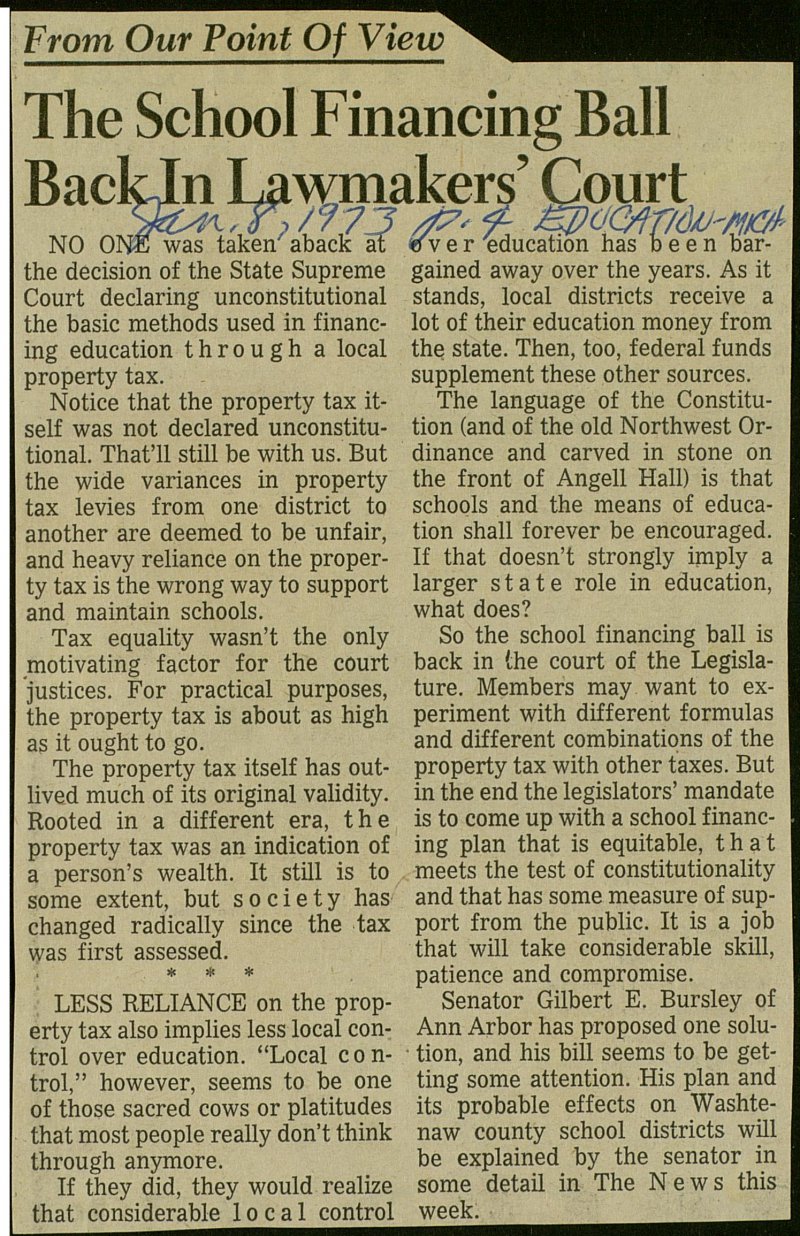The School Financing Ball Back In Lawmakers' Court

NO ONïïwas taken' aback at the decisión of the State Supreme Court declaring unconstitutional the basic methods used in financing education through a local property tax. Notice that the property tax itself was not declared unconstitutional. That'll still be with us. But the wide variances in property tax levies from one district to another are deemed to be unfair, and heavy reliance on the property tax is the wrong way to support and maintain schools. Tax equality wasn't the only motivating factor for the court 'justices. For practical purposes, the property tax is about as high as it ought to go. The property tax itself has outlived much of its original validity. Rooted in a different era, the property tax was an indication of a person's wealth. It still is to some extent, but society has changed radically since the tax was first assessed. LESS RELIANCE on the property tax also implies less local con: trol over education. "Local control," however, seems to be one of those sacred cows or platitudes that most people really don't think through anymore. If they did, they would realize that considerable local control y ' 7 -h-zi íuAj ritus' ever education has been bargained away over the years. As it stands, local districts receive a lot of their education money from the state. Then, too, federal funds supplement these other sources. The language of the Constitution (and of the old Northwest Ordinance and carved in stone on the front of Angelí Hall) is that schools and the means of education shall forever be encouraged. If that doesn't strongly imply a larger state role in education, I what does? So the school financing ball is back in the court of the Legislature. Members may want to experiment with different formulas and different combinatipns of the property tax with other taxes. But in the end the legislators' mandate is to come up with a school financing plan that is equitable, that meets the test of constitutionality and that has some measure of support from the public. It is a job that will take considerable skill, patience and compromise. Senator Gilbert E. Bursley of Ann Arbor has proposed one solution, and his bilí seems to be getting some attention. His plan and its probable effects on Washtenaw county school districts will be explained by the senator in some detail in The News this week.